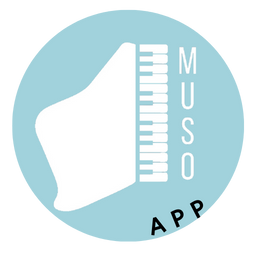"Does my kid have to read notes to learn music?"
The answer is yes, only for classical music. If you want to learn pop music, jazz, music improvisation or contemporary composing which is more chord based - then this blog is not for you and you can definitely be able to learn music without reading notes (and relying more on chords/listening).
But if you are interested in learning classical music (e.g. Beethoven, Mozart, Chopin), there is no improvisation involved and ultimately, classical music performance in simple terms is "reading a music sheet to learn the notes and perform it exactly the way it's written" with stylistic interpretation. In a way, it's similar to cover singing a song where you "learn the lyrics and perform it exactly the way it's written" with your own twist.
Unfortunately, if your child has passed Grade 8 classical music exam without reading notes - they could never be able to play another classical piece on their own because they have become dependent on the parent or teacher to read notes. It's exactly the same as learning a second language and the student memorised the "monologue" by memorising their parents' readings. If the student goes to another city to speak/read the language without the parent or teacher, essentially they are useless. Same goes with classical music.
So if your child is learning classical music by "copying" the teacher, then I'm sorry to say that you are wasting your money. However, if your goal is simply just to get the "Grade 8 certificate" and you don't care that your child won't continue music for the rest of their life - then that is okay.

"Is my kid too dumb to learn music notes?"
The answer is no! ANY kid using the Muso-Method framework and Muso Music Flash Cards can learn music notes effectively in 6 months. If you are interested, please read our blog "How to read classical music notes in 12 weeks". There are many ways to learn classical music but this Muso-Method blog will teach you (the parent) the correct frame work to sight reading music notes for your kid.
I also want to specify that the Muso-Method sight reading framework can work on any child, so long there is a Muso triangle: an interested kid, passionate parent and ideally, a passionate teacher.
But for this blog, we are going to assume that there is no piano/music teacher involved and just parent and kid.
Other motor and cognitive pre-requistes for your kid to begin piano:
- They should be at least 4 years old OR can confidently speak/recognise "ABCDEFG" forwards and backwards. Even they struggle speaking other letters or using phonics, that's totally fine
- They can respond to your instructions in 3 seconds e.g. press this button, pick up the fork. Basically they need to have some sort of consciousness or responsiveness.
- They can press all five fingers onto the piano, one finger per key. They might not be able to curve their fingers like the photo below, but as long as they can separate their fingers, then it is OK. If you notice their fingers are struggling or always 'clamping' together, then perhaps they are still too young and their motor skills haven't developed enough.

Myths about kids learning piano:
- My child needs to be able to sit still for 30 minutes straight before starting piano lessons - FALSE. As long as your kid has a small interest and the parent is supporting/encouraging, any child can learn classical music well.
- My 6yo child has been taking piano lessons for 1 year already but still cannot read music notes well, so that means she has a cognitive issue - FALSE. Most likely your child has been using acronyms like FACE to read music notes and that is the slowest way to learn classical music reading. I personally hate that way of learning and I am so lucky to not have been taught that way. The problem is not your child - but the educational framework. We can guarantee if you switch your child's note reading learning following the Muso-Method note learning framework and you follow our guide plan diligently with Muso Music Flash Cards, you will see immense changes and results.
- My child might be too "sporty" for classical music. That is actually the opposite! We encourage all our Muso students and parents to do a sport because kids who have good motor skills can play fast pieces better than kids who don't do any sport. It also helps them move their little fingers quicker and improves their responsiveness to instructions.
Things to note about kids and music note reading:
- What's the ideal age to start? Generally, we found that in Australia the ideal age for girls to start music is 4 or 5 years old, whilst boys can start from 5 to 7 years old. In Asia, girls can start from even 3 years old, and boys from 4 to 5 years old. The age start is heavily contributed by genetics (e.g. small bones/small frame) and parental influence or situational surroundings (e.g. Dad watching football on TV, Asians from capital Asian cities attend school from 2 years old, parents listening to classical music, Mother doing everything for the kid etc.)
- Kids who play sport can play fast pieces (i.e. "virtuosic" pieces) where as kids who don't struggle to play fast speeds (i.e. fast tempos). However, sporty kids tend to struggle playing lyrical (slower) pieces as it can get too "boring", but this is an issue that can easily be overcome.
***
Written by piano teacher and entrepreneur Isabelle Ng, co-founder of Muso Music Academy, Muso Music Publishing and designer of the Muso Music Flash Cards. Isabelle's mission with Muso is to help the world learn classical music in a fun and serious way.

